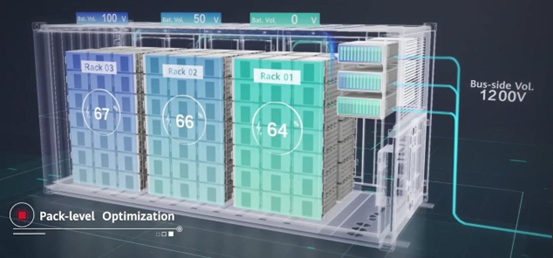Since
people began to use electricity to find the existence of light at night,
people's demand for electricity has gradually grown, coupled with the advent of
the intelligent era, various electrical and electronic products came into
being, and people's demand for electricity has grown rapidly. From the
invention of the first real battery to the current multiple power generation
methods, the power generation methods are no longer limited to the traditional
form but also develop in the direction of intelligence, clean energy,
diversification, and energy saving. With the development of a variety of power
generation methods, the power supply structure has been continuously adjusted,
the optimization level of thermal power has been improved, the development of
hydropower has been increased, the construction of the power grid has been
continuously strengthened, the achievements of power environmental protection
have been very significant, and the power equipment technology has also been
continuously improved.

Types of
Power Generation Methods
Hydropower
Hydropower
is the use of water that has not been converted into the mechanical energy of
the water wheel, and then the mechanical energy is used to drive the generator
to provide electric energy, the use of water energy, a renewable clean energy,
is very conducive to environmental protection, and the efficiency of hydropower
is very high, so the cost is very low, easy to adjust. However, due to the
influence of natural conditions, it is often related to the abundance of
water-level resources that need to be comprehensively utilized.
Thermal Power
Generation
Thermal
power generation refers to the conversion of chemical energy into heat energy,
which is absorbed by water into water vapor, converts heat energy into
mechanical energy, and finally converts mechanical energy into electrical
energy. It is one of the main modes of electricity production at present, which
can provide a large amount of electricity for society and industry, and provide
necessary energy for our life and economic development. It can also promote the
development of related industries such as coal and natural gas. Thermal power
generation is not affected by the season, and power generation operations can
be carried out throughout the year, which can ensure the power supply
throughout the year. Thermal power generation can flexibly respond to different
power needs, and flexibly adjust the power generation according to the needs of
the market. However, thermal power generation will produce a large number of
harmful gases, which will bring pollution to the environment; There is also the
need to consume a large amount of renewable resources, which leads to the
depletion of resources.
Solar Power
Generation
In
recent years, the wide application of photovoltaic technology has met people's
electricity needs very well, using solar energy to convert into electricity,
and this efficient light conversion rate makes this clean and sustainable
renewable energy have great use. Coupled with the development of the
semiconductor manufacturing industry, the combination of photovoltaic
technology and semiconductors has contributed to the production of many solar
appliances, which are very diverse, their production cost is low, and the cost
of maintenance and operation is also very low, which can save costs for people
and meet people's daily power needs. Taking Huawei's micro solar as
an example, the intelligent cloud PV system can be monitored, controlled,
managed, operated, and maintained promptly, and users can also be provided with
suggestions regularly.

Conclusion
In
general, due to the development of technology and the advent of the intelligent
era, the power generation mode has also moved from the traditional power
generation mode to the new power generation mode, with clean energy as the main
technology, power generation can greatly protect our environment, but also
improve the efficiency of power generation, to meet people's electricity needs.
The main trend in future power generation technology is clean energy, which
will increasingly focus on sustainability, that is, providing a long-term
stable power supply while reducing the environmental impact. At the same time,
there will also be a trend towards storing energy to meet the changes in the
timing and quantity of energy supply demand, thereby improving energy
efficiency.
